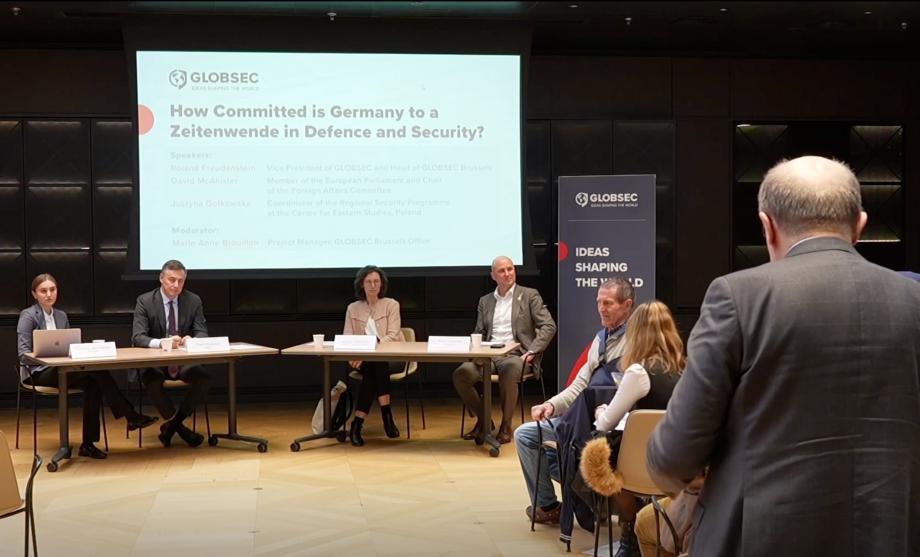Key Takeaways from GLOBSEC Brussels’ Event "How Committed is Germany to a Zeitenwende in Defence and Security?"

On March 8th, Justyna Gotkowska, David McAllister, and Roland Freudenstein joined GLOBSEC in Brussels to explore how committed Germany is to a "Zeitenwende" - or turning point - in defence and security. The event brought together experts and policymakers with a range of experience and expertise, allowing for a comprehensive analysis of the current debate and the effect of the Ukraine invasion on the country's defence policy. Their conversation proved to be a crucial contribution to understanding the future of the European security landscape.
Germany has come a long way since February 2022 and has provided military, financial, and humanitarian support to Ukraine. Overall, it is the second biggest contributor. Yet, its allies remain unsatisfied with the government's continuous reluctance to send more help and the excruciatingly slow progress and lack of tangible results on its own defence. The country's Chancellor and his party, the Social Democratic Party, face a tradition of anti-war and appeasement politics that complicate the formulation of policies to put the "Zeitenwende" into action. The German public's long-standing pacifism and anti-American views have further hindered the government's ability to act.
Despite Berlin's numerous pledges to boost military spending and European defence participation, it is once more not expected to meet the 2% of GDP defence spending objective of NATO this year. In fact, the nation's military budget for 2023 is projected to be smaller than for 2022. The Bundeswehr - the nation's army - has been underfunded for years, leaving it vulnerable. This is illustrated by the revelation that only a third of the country's tank battalions are ready for battle. The support offered to Ukraine has further decreased Germany's readiness. To make matters worse, ammunition stocks are extremely low, with only enough to last 1.5 days in the event of a conflict. With the current flawed procurement system, it is improbable that Germany will be able to deliver on its promises to increase its capabilities.
To ensure that Germany keeps its promises and delivers on its commitments, partners must hold Berlin accountable while reminding the government that European defence is a joint effort. The country's slow progress has caused resentment among its allies, particularly in Poland and the Baltic states. However, it would be counter-productive to fuel the rhetoric between the two sides further, and incentives should be considered to influence Berlin's policies. Germany and the Zeitenwende will be judged on what is concretely delivered, such as an increase in air defence in the East and the sustainable delivery of weapons to Ukraine. The U.S. could potentially help by encouraging Germany and organising trilateral exercises with Poland, Germany, or the Baltic states and Germany. Ultimately, it will depend on German internal politics; however, major events such as the U.S. and European elections in 2024 and the advancement of the war in Ukraine could impact the Zeitenwende.
Replay the debate: https://app.livecasts.eu/how-committed-is-germany-to-a-zeitenwende-in-defence-and-security/questions